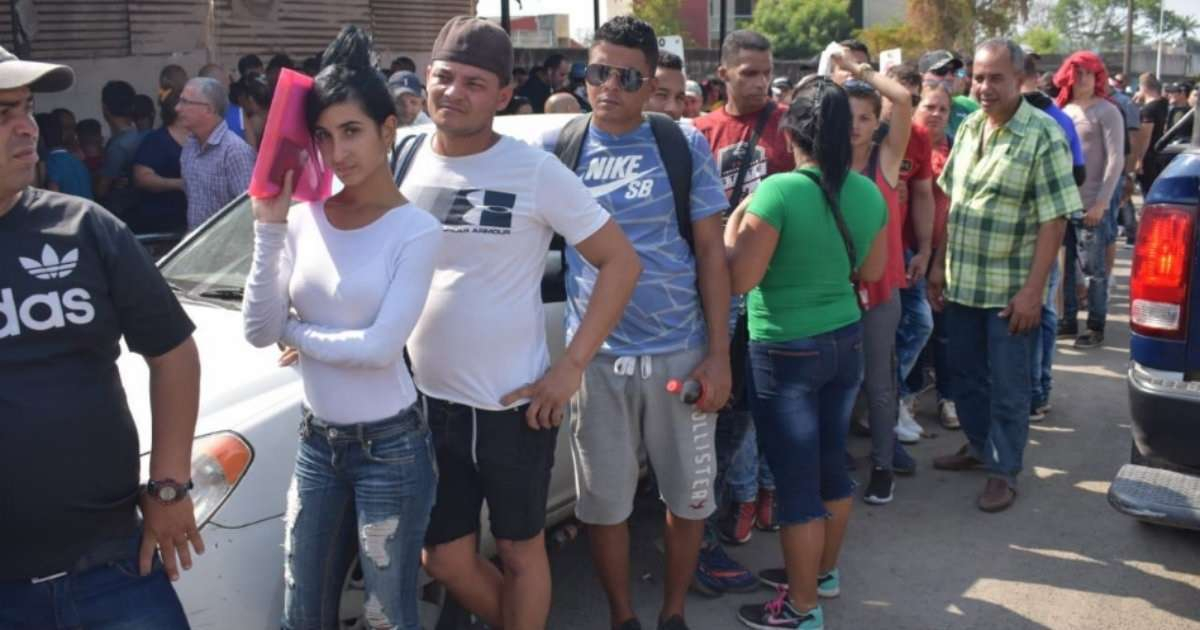
The Joe Biden administration will allow immigrants from Cuba, Haiti, Nicaragua and Venezuela who are in Mexico can request entry to the United States as refugees, National Security Advisor Jake Sullivan announced this Friday.
The initiative is part of a bilateral agreement for the creation of a “multipurpose international space”, that the governments of Mexico and the United States negotiated in order to favor the resettlement of immigrants stranded in Mexican territory.
“Today we announce our full support for an international multi-use space that the Government of Mexico plans to establish in southern Mexico to offer new employment and shelter options to the most vulnerable people currently in Mexico,” Sullivan said in a statement. statement issued by the White House. “We are also committed to accepting refugee resettlement of eligible people from Cuba, Haiti, Nicaragua and Venezuela who are already in Mexico.”
It has not been detailed how the plan, which is designed for immigrants to avoid illegal border crossings and stalking by smuggling networks, will work. But in the case of nationals of Cuba, Haiti, Nicaragua and Venezuela, it will be a complementary avenue to the programs already in force of the humanitarian parole and the asylum appointments through the application known as CBP One.
"We encourage immigrants to use these legal avenues instead of putting their lives in the hands of dangerous smugglers and traffickers," Sullivan added in the statement. "By following our laws, those who attempt to enter the United States illegally will continue to face strong consequences, including deportation, possible criminal prosecution, and a ban on re-entry."
The proposal would benefit thousands of immigrants who remained in Mexico after the end of the Title 42 health order, on May 12, and would include both the asylum processing such as resettlement and employment offers.
The idea is to decongest the programs implemented by the Biden administration to restrict the uncontrolled flow across the border. Although the Illegal crossings of Cubans, Haitians, Nicaraguans and Venezuelans decreased by almost 89% Since January, even the demand for applications to access the United States with humanitarian parole or through CBP One appointments exceeds the processing capacity of immigration institutions.
Until the end of June, almost 160,000 Cubans, Haitians, Nicaraguans and Venezuelans have arrived legally with humanitarian parole, but the registered applications are close to two million, while only about 1,200 can be processed daily. Regarding the CBP One mobile application, up to 1,450 appointments are offered daily, with repeated complaints about connectivity and the speed with which available spaces are filled.
It is not clear what the designated place for the “international space” will be, but this week the Mexican Foreign Minister Alicia Barcena told reporters that the president Andrés Manuel López Obrador has ordered to establish it in southern Mexico.
The project was finalized after meetings that took place earlier this week in Mexico between President López Obrador and a US delegation, led by the White House National Security Advisor, Elizabeth Sherwood-Randall. Sullivan called the negotiations "very productive" and said, "The United States is taking additional steps to expand access to safe, orderly services and legal migration pathways."
Cooperation on migration matters between both countries was particularly highlighted by Blas Nuñez-Neto, Undersecretary of Border Policy and Immigration at the Department of Homeland Security (DHS), who participated in the negotiations.
"The collaboration between Mexico and the United States is stronger than ever today and I can say that it is developing like never before in the last two decades," said Núñez-Neto.
During a press conference on Thursday, the official highlighted as unprecedented the fact that the Mexican government has allowed the return of third-country citizens to its territory from the border.
According to figures revealed by DHS, since Title 42 was suspended, The United States has repatriated more than 85,000 people to 115 countries, including 4,000 citizens of Cuba, Haiti, Nicaragua and Venezuela who were returned to Mexico.
What do you think?
COMMENTFiled in: